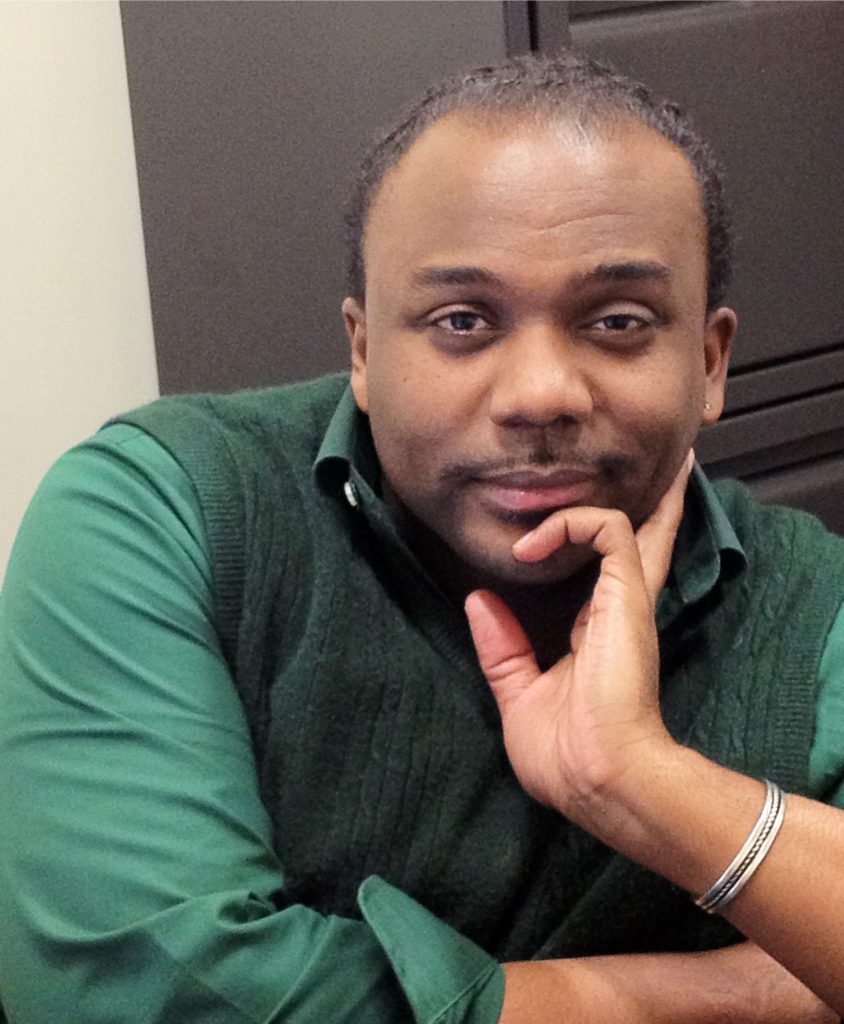On September 21 at Concordia University, Healthy Democracy hosted the 3rd, and final, component of the 2019 Community Oregon program, the Community Oregon Expo. Community Oregon is a program of our organization designed in response to the need to increase understanding and communication among diverse segments of Oregon’s electorate. The final phase of the program is a public exposition, which includes all Community Oregon participants to showcase what was learned as a result of their experience in the program.
Damon Isiah Turner, the 2019 Community Oregon Camp Assistant Facilitator, a participant in the 2017 Community Oregon program and Managing Director of Know Agenda Public Service Consulting, closed the Community Oregon Expo and the 2019 Community Oregon program with some beautiful lessons, learnings, and reflections on the program. His speech specifically reflected on what community means to him within the context of democracy and living in our Constitutional Republic. More specifically, Learning. Livability. And Leaning in.
Hello everyone,
As we come to a close, I want to extend a “thank you” so much for attending the 2nd Community Oregon Expo – and thank you, participants – for sharing your experiences.
On behalf of your Community Oregon staff, we are honored and appreciative of your attendance this afternoon and your participation in Community Oregon for the last 6 months. And a particular thank you is extended to those of you who live in Eastern, Central and Southern Oregon that traveled a lot further to get here. And for you Portland Metro folks, thank you for bicycling or walking here.
*Joking.*
To add on to Greg’s remarks from earlier, I have always believed that Oregon has the potential – by virtue of its population size and uniqueness culturally as both a rural and sustainability and rancher minded state – to be a laboratory of sorts for participatory democracy based in people learning more about each other’s views and experiences.
Healthy Democracy is an innovator in this approach with its core program – the Citizen Initiative Reviews – or CIRs – where 20 voters are brought together in various locales around the world in an intense 4-day convening where through a deliberative, facilitative, and verifiable process – a deliverable is created that represents a shared and collective analysis of a particular policy proposal in ballot measure form. The deliverable is a statement of position from both sides of an issue along with verifiable facts, for voters to make their own, respective, independent decision for themselves.
That same spirit and sense of truth – not a manufactured truth – but your own truth based in your experiences that do not have to conflict with another person’s distinct experience – is why Community Oregon is needed. We – as Oregon residents – and most of us as a citizenry – and as a State – and as a nation – need to start knowing each other. Whether we need to start again, or if we ever really did know each other as a citizenry – a social scientist can have the ultimate, researched-based, say on. But what we all are well aware of is where we are now. Community Oregon can contribute to changing that.
For a couple of years, I have been thinking about a thematic and consistent approach to personally redefining what “community” means to me within the context of democracy and living in our Constitutional Republic. This concept I call the “3L’s.”
The first “L” is: Learning.
Community Oregon literature states that “The purpose of the program is to build bridging social capital across some of Oregon’s tougher divides.” Let us consistently and continuously ask ourselves – within the context of healthy democracy, are we really trying to learn from each other’s experiences in dealing with issues as broad ranging as zoning, homelessness, economic development, sustainability, transportation, housing, farming, ranching, land rights and many, many others – to actually develop policies that have the most beneficial impact for the most people? Or, are we more concerned with turf battles – or we are under the impression that “our way” is the “only way” that others should be doing something? Are we actually learning from others and communities that are different from ourselves and our own that can be beneficial for our own democratic processes where we live? Learning – is the first standard.
The second “L” is: Livability.
From my observation, there are a whole lot of people that do not pay much attention to the nuances of living in a Healthy Democracy. However, almost everyone I know – those immersed in public issues as well as those who are not – who are interested in what can make their life better, and their community better and what can contribute to their prosperity and happiness. That is in large part, livability. The Partnership for Livable Communities defines livability as: “the sum of factors that add up to a community’s quality of life – including the built and natural environments, economic prosperity, social stability and equity, educational opportunity, and cultural, entertainment and recreation possibilities.” And I would add – that sense of belonging that binds us as human beings. Consequently, we must ask ourselves this simple question – are we approaching Healthy Democracy to make livability a core element of it for every resident? Livability – is the second standard.
And the third “L” is: Leaning In.
This is a term that I have borrowed from author and tech executive Sheryl Sandberg in another context. I thought about this two years ago as I was visiting Klamath Falls, Grants Pass, and Lake County, and this past summer when I visited Klamath Falls again and Baker City – a couple of months ago as staff to assist Community Oregon participants. I thought, “Am I tangentially observing a place different from where I live, or am I actually “leaning in” to really being invested in: (1) both giving of myself; (2) receiving what our host shared of themselves for the purposes of shared, increased understanding; (3) investing in my own personal development and growth as an individual, and; (4) willing to concretely transfer the first 3 into contributing to a Healthy Democracy in regard to policy issues that may be outside of my immediate reference impacts?
Learning. Livability. And Leaning In. I know that I am willing to invest in all three. And I also know within each, what elements that I need to work on both for personal growth and for verifiable, provable, informed based knowledge. And I know that you are willing, as well – or you would not be here and be committed to your passion in your everyday personal and professional lives in making your world as good as it can be. You know exactly why we need a Community Oregon.
Thank you – to our philanthropic funders, to the Healthy Democracy Board of Directors, to the illustrious Robin, to the industrious Linn – to the idiosyncratic Kelly – and to the grounded Greg – and to you – our 2nd cohort of committed, open, and cautious individuals – for committing to this project and to this change. Let us ensure that Community Oregon becomes enduring and contributes to strengthening democracy in Oregon for us all.
Whether we are rural or urban, southern, eastern, central, northern, or western – we are all Oregonians. And what we do can have the potential to greatly impact the rest of the country.


